Related Research Articles
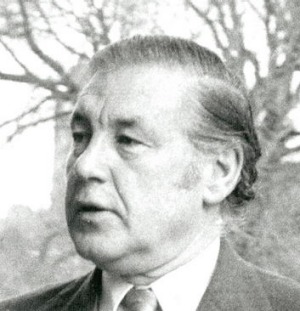
Sir Rupert James Hamer, AC, KCMG, ED, generally known until he was knighted in 1982 as Dick Hamer, was an Australian Liberal Party politician who served as the 39th Premier of Victoria from 1972 to 1981.

The Racial Discrimination Act 1975 (Cth), (RDA) is a statute which was passed by the Australian Parliament during the prime ministership of Gough Whitlam. The RDA makes racial discrimination in certain contexts unlawful in Australia, and it also overrides States and Territory legislation to the extent of any inconsistency.

The Australian Human Rights Commission is the national human rights institution of Australia, established in 1986 as the Human Rights and Equal Opportunity Commission and renamed in 2008. It is a statutory body funded by, but operating independently of, the Australian Government. It is responsible for investigating alleged infringements of Australia's anti-discrimination legislation in relation to federal agencies.
A national human rights institution (NHRI) or national human rights commission (NHRC) is an independent institution bestowed with the responsibility to broadly protect, monitor and promote human rights in a given country. The growth of such bodies has been encouraged by the Office of the United Nations High Commissioner for Human Rights (OHCHR), which has provided advisory and support services, and facilitated access for NHRIs to the UN treaty bodies and other committees. There are over one hundred such institutions, about two-thirds assessed by peer review as compliant with the United Nations standards set out in the Paris Principles. Compliance with the Principles is the basis for accreditation at the UN, which, uniquely for NHRIs, is not conducted directly by a UN body but by a sub-committee of the International Coordinating Committee of National Human Rights Institutions (ICC). The secretariat to the review process is provided by the National Institutions and Regional Mechanisms Section of the OHCHR.
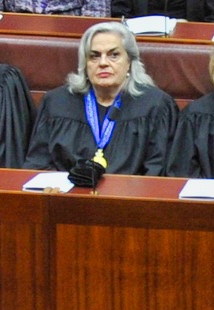
Susan Maree Crennan, is a former Justice of the High Court of Australia, the highest court in the Australian court hierarchy.
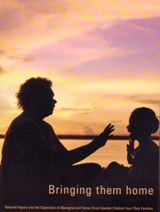
Bringing Them Home is the 1997 Australian Report of the National Inquiry into the Separation of Aboriginal and Torres Strait Islander Children from Their Families. The report marked a pivotal moment in the controversy that has come to be known as the Stolen Generations.
Sir Kevin Victor Anderson was an Australian lawyer and judge who served on the Supreme Court of Victoria from 1969 to 1984.
Deborah Jane Lawrie, known as Deborah Wardley while married, was the first woman to become a pilot with a major Australian airline after winning a landmark sex discrimination case against Ansett Airlines.

The Charter of Human Rights and Responsibilities Act 2006 is an Act of Parliament of the state of Victoria, Australia, designed to protect and promote human rights.
The Human Rights Awards are a series of awards for achievements in the field of human rights in Australia, bestowed by the Australian Human Rights Commission at the Human Rights Day Ceremony in December in each year.
The Department of Justice and Community Safety (DJCS) is one of nine government departments in the state of Victoria, Australia.
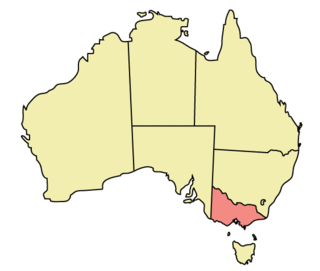
The Australian state of Victoria is regarded as one of the most progressive jurisdictions with respect to the rights of lesbian, gay, bisexual, transgender and intersex (LGBTI) people. In January 2015, the Victorian Labor Daniel Andrews government elected in 2014 quoted a catchphrase motto of - "Equality is not negotiable within Victoria!".

The Equal Opportunities Commission (EOC) is a statutory body responsible for implementing the Sex, Race, Disability, and Family Status Discrimination Ordinances in Hong Kong. The Commission was established on 20 May 1996 as an independent body to investigate complaints, facilitate mediation and take legal action against offenders.
The Asia Pacific Forum (APF) is one of four regional networks of national human rights institutions (NHRIs) within the International Co-ordinating Committee of NHRIs. The APF formerly accredited NHRIs for compliance with the United Nations' Paris Principles, but now acknowledges the accreditation decisions of an ICC sub-committee on which the APF has one of the four (regional) seats.
The Massachusetts Executive Office of Health and Human Services (EOHHS) is a Cabinet level agency under the Governor of Massachusetts. EOHHS is the largest secretariat in Massachusetts, and is responsible for the Medicaid program, child welfare, public health, disabilities, veterans’ affairs, and elder affairs. In total, EOHHS oversees 17 state agencies.
LGBT employment discrimination in the United States is illegal under Title VII of the Civil Rights Act of 1964; employment discrimination on the basis of sexual orientation or gender identity is encompassed by the law's prohibition of employment discrimination on the basis of sex. Prior to the landmark cases Bostock v. Clayton County, Georgia and R.G. & G.R. Harris Funeral Homes Inc. v. Equal Employment Opportunity Commission (2020), employment protections for LGBT people were patchwork; several states and localities explicitly prohibit harassment and bias in employment decisions on the basis of sexual orientation and/or gender identity, although some only cover public employees. Prior to the Bostock decision, the Equal Employment Opportunity Commission (EEOC) interpreted Title VII to cover LGBT employees; the EEOC determined that transgender employees were protected under Title VII in 2012, and extended the protection to encompass sexual orientation in 2015.

Elizabeth Broderick is an Australian lawyer, who was the Australian Sex Discrimination Commissioner for over eight years from 2007 to 2015 and has a United Nations special rapporteur for Discrimination against Women and Girls since 2017. She is a former partner and head of legal technology at Ashurst Australia, a global commercial law firm.
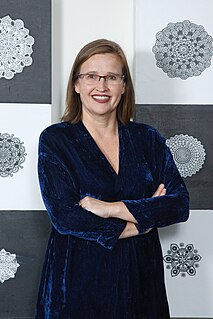
Kate Jenkins has been the Sex Discrimination Commissioner at the Australian Human Rights Commission since 2016. Previously, she was Commissioner at the Victorian Equal Opportunity and Human Rights Commission. Jenkins is also on the Board of Berry Street Victoria – the state's largest independent child and family welfare organisation – and a member of the boards of Heide Museum of Modern Art and Carlton Football Club.
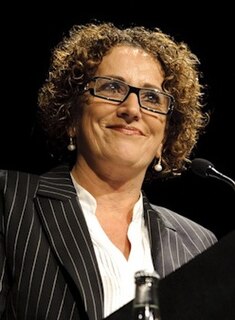
Helen Veronica Szoke is the former Chief Executive of Oxfam Australia, and a commentator and advocate on issues of human rights, poverty, inequality, gender and race discrimination. Throughout her career, she has held leadership roles across the health sector, human rights and public policy, and international development sector.
Moira Emilie Rayner, is a New Zealand-born, Australian-based barrister and human rights advocate. She was the first Commissioner for Equal Opportunity appointed by the Victorian Government under the Equal Opportunity Act 1984, an office which she held until 1994. In this position she was responsible for monitoring the Equal Opportunity Act; the Racial Discrimination Act 1975, the Human Rights and Equal Opportunity Commission Act 1986, and the Commonwealth legislated Sex Discrimination Act 1984. Simultaneously, in 1986, she was appointed a Commissioner of the Law Reform Commission of Western Australia, a position she held until 1990. In 2000 Rayner became the first Director of the office of Children's Rights Commissioner for the city of London, UK.
References
- ↑ "Victorian Equal Opportunity and Human Rights Commission - About the Commission" . Retrieved 1 April 2015.
- ↑ Tim Colebatch (27 September 2014). "Dick Hamer: the quiet campaigner". The Sydney Morning Herald . Fairfax Media . Retrieved 1 April 2015.